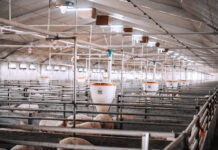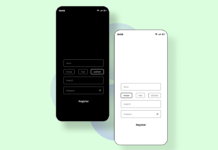IoT is a network of interrelated digital, computing and mechanical devices which are connected ultimately to the internet. The Internet of Things permits all these devices to exchange and consume data seamlessly without or with little human intervention.
IoT is beneficial in manufacturing industries as these industries require faster development of quality products for a higher ROI. By connecting processes, infrastructure, products and people, this advanced technology has enabled the manufacturing units to carry out informed manufacturing.
Leveraging this technology, the global industrial sector has experienced a remarkable transformation. It has been proved from a study that those manufacturing units invested in IoT have experienced an enhancement in the efficiency of their instruments by 24% within 3-4 months. Also, the product defects have been reduced by 16% and production increased by 10%.
For example, let us talk about the bike manufacturing unit Harley-Davidson. The firm invested in IoT technology to transform its bike manufacturing process. After using the technology, the firm reduced its overall bike production time to 6 hours from 21 days. Thus, IoT in manufacturing industries promises safety improvements, productivity gains, time and cost savings.
The benefits from IoT are innumerable due to which manufacturers from all over the world are investing heavily in it to interconnect their industry equipment and transform from a small manufacturing unit to a big one.
Applications of IoT in Manufacturing Industry
IoT integrated devices provide instant data information because of which manufacturers can make timely informed decisions. Valuable information on the condition of the machine is provided by the sensor devices, using which better analysis can be done and better outcomes can be derived.
Predictive Maintenance
In a manufacturing unit, production issues are inevitable.Figuring out them on time and resolving them is a big issue. Sometimes, it happens that the manufacturer fails to detect the technical issues of a machine, because of which the machine stops producing. Here IoT plays a vital role. It alerts about predictive maintenance so that the manufacturer can from beforehand detect the machine issues in advance and fix them immediately.
When the manufacturer installs Io Taps on his operating platforms and machines, the sensors embedded send alerts on occurrence of emergence of risk factors. For example, machines and robots are monitored by sensors. The operating platforms receive data in real-time from these sensors and analyze them and apply sophisticated algorithms. These algorithms issue warnings about vibrations or high temperatures that exceed standard parameters.
Faster Improvement Implementation
Valuable information is generated by IoT apps. With the help of this information the concerned persons like manufacturing, process or quality engineers can analyze the data fast. After that they can implement the required improvements quickly from anywhere.
Increased Safety
Malfunctions of equipment and machines are the biggest factor for accidents occurring in the industrial units. As per a research, it has been found that in every 15 seconds around 121 labourers get injured or face accidents at the workplace. With IoT technology, the machine malfunctions can be detected earlier thereby reducing the occurrence of any accident. IoT increases the safety data volume and transmits the live data directly to the concerned department. Data analytics backed by AI informs the employees instantly regarding the current issues so that the employees can wear safeguards while working and be extra cautious while working.
Foreseeing the Requirements
Today the entire game is of data. It is through data; a manufacturer can evaluate the patterns and derive information on the production quality. Through the derived data a manufacturer can anticipate and strategize the necessary changes. A manufacturer can improve his inventory, scale up/down his workforce, regulate costs as well as can efficiently handle operational dependency with the help of data generated through IoT apps.
Smart Pumping
IoT apps are of great use in water management, chemical manufacturing and power plants. The pressure and flow of water are regulated and controlled by the sensors embedded in the pump. As per the set metrics, the pumps are automatically turned off by these devices. Also, live information regarding the system’s performance is collected by these devices. With the help of IoT apps, industries canreduce the manual labour, control their electricity expenses and multiply their production by ten folds by wasting a minimal amount of water. Pumping systems powered by IoT technology have enabled these industries in installing an efficient, connected and flexible pumping system.
Supply-chain Management
IoT powered devices can track as well as trace all the inventory systems located globally. The supply chain can be monitored by industries easily as they can derive available resources’ meaningful estimates and the status of their supply chain. The information rendered is regarding the equipment collection, work-in-progress and the estimated date of delivery of the required materials. ERP – Enterprise resource program systems along with the IoT technology help the manufacturer in getting the precise data automatically. The manual documentation is no longer needed to carry out operations.
With IoT apps, industries can detect so many hidden opportunities. They can also pinpoint or improve the issues because of which their development processes are getting hindered.
Quality Control
Shortcomings and faults in the final manufactured goods upsurge themanufacturing expenditure.For mitigating these issues, IoT apps can be utilized by the manufacturers.
IoT apps can efficiently monitor the manufactured product’s quality at any production stage. The raw materials used, the transportation route and the end customer’s reaction all can be monitored. From the data received by the IoT apps, the manufacturing firm can detect the reasons for their failure (if any) and apply the necessary steps for reducing or eliminating the failure causes. The firms can also precisely detect the production chain issue and take remedial measures to optimize their production process. In industries like food or pharmaceutics, IoT apps are very beneficial as such apps detect and lessen the risk factors.
Increased Revenue
Undoubtedly, IoT has transformed the entire manufacturing industry. It is because of IoT apps, these industries have been able to mitigate all the possible industrial issues. Other than this, such apps have enabled the industrialists to boost their revenue by multiple folds. As it is known, the revenue of an industry only boosts if there is good production. By integrating IoT, it has become possible for the manufacturers toincrease their production level while maintaining the quality. Operating machines are 24*7 monitored by the IoT powered devices and on the basis of the analysis made, those devices generate accurate reports that can be used for making better decisions. With better decisions business strategies can be implied in a better way thereby resulting in increased revenue.
Asset Interconnectivity
Asset interconnectivity is also possible via IoT. In a manufacturing unit there are huge machines. Also, a manufacturing unit has several small units. Hence,keen monitoring on each machine and unit is necessary for better performance. For example, if a machine faces breakdown, the whole unit has to suffer tremendously. It is where IoT is considered very useful. The embedded sensors in IoT devices track the performance of every asset and generate data. From this data a clear picture on the performance of the asset is known by the manager in real time.
Wrapping Up
IoT apps have transformed the traditional working procedure of the manufacturing units. IoT apps are continuously enhancing communication. Along with this such apps help the manufacturing firms in optimizing their manufacturing processes. With this powerful technology, manufacturers have been able to boost the efficiency of their labour workforce and the productivity of their firm. IoT apps can create self-healing machines, using ML enhance inventories, economically run the entire production cycle and manage the supply-chain of the industries efficiently. Thus, IoT apps are going to build a better future for the manifesting industries and certainly investing in it is going to be a wise decision.








